00:00-55:05: Greetings! But then, in under thirty seconds, Jeff drags us into the state of Marvel Comics because he knows Graeme has some thoughts on the Marvel Legacy “comic book industry changing” announcement of Friday, which involved 51 comics announced across six different websites, the social media accounts of their PR people, the occasional PR mailing and via the game-changing, high-density-information tool of …animatedGIFs, you guys! Yes, what better way to communicate plans about your much-needed initiative than the very tool most of us on Twitter use to make our “I can’t even” tweets seem interesting? It’s a very big conversation that, if nothing else, feels like we’re a little more worried about Marvel’s future than Marvel is? Anyway, be prepared because, as Graeme puts it, “I apologize, because I’m about to complain *a lot*!” Also discussed: the 51 titles announced and the one missing title; our dim memories of Spirits of Vengeance; the “innocence” of Marvel Two-In-One and Marvel Team-Up; homework; whether or not anyone is really calling for Marvel management to leave; a related digression about the perception of digital comics, digital trades, and Marvel’s recent digital fire sale on Amazon; bewilderment; terror; suffering; etc.
55:05-1:00:54: But we got you through all that so we could get to this: comic books! Sweet, sweet comic books! First up: Graeme is very enthusiastic about The Complete Sabrina the Teenage Witch: 1962-1971 (Sabrina’s Spellbook), a book he describes in a way that reminds Old Man Jeff of a scene from The Big Chill that either isn’t on Youtube (because Jeff’s too old) or Jeff can’t find on Youtube (because Jeff’s too old). Too bad, Jeff! Graeme also likes the back-up story by Tony Bedard & Ben Caldwell back-up for the Wonder Woman/Tasmanian Devil one-shot. (The joke from the Bugs Bunny/LOSH joke also sounds pretty great.)
1:00:54-1:04:57: Speaking of DC’s “comic” books, Jeff wants to talk about the final issue of The Flintstones by Mark Russell and Steve Pugh. We’re going to miss this book.
1:04:57-1:22:55: And then….Jeff has more stuff he needs to get off his chest about Tom King’s Batman, Yes, those of you paying attention will not be surprised to see our podcast’s ongoing subplot of 2017 arise yet again! And yet this probably will be the very last take on it for some time (God willing!) as Jeff talks about reading the first two trades, “I Am Gotham” and “I Am Suicide,” looking at “The Brave and the Mold” issue, the Bat Hound storyline, and having a rough outline of an epiphany while reading those in light of his recent reading of Bob Haney’s Brave And The Bold issues.
1:22:55-1:43:41: And the flipside of this, but also related in Jeff’s mind is his very recent read of Doom Patrol: Brick by Brick Vol.1 by Gerard Way and Nick Derington. On the one hand, Jeff feels like Way is striking a great balance between being respectful of the characters and using them as a way to talk about and embody other experiences…but Jeff is also a little vexed by the way some of the more traditionally important tasks of fiction writing are handled. By contrast, Graeme has *a lot* of love for the book, and confesses to being unable to be objective about it at all. Leading to some metacritical talk about criticism, subjectivity, and objectivity.
1:43:41-2:06:10: And to drag in another layer to this, Jeff read Manga In Theory and Practice by Hirohiko Araki, creator of the *amazing* JoJo’s Bizarre Adventure, and wants to not only talk about some of the practices Araki discusses in that book, but also the conflict and challenge of reading in translation the works of a cartoonist from a very different culture.
2:06:10-2:11:21: And! Jeff has read volume 1 of Golden Kamuy by Satoru Noda and it was rad. (Even with the fucked up thing that keeps happening to Viz’s digital manga recently.) Is it possibly the best bear-punching comic ever? A controversial statement, we know….but Jeff loves this book.
2:11:21-2:22:49: And and! Jeff also really loved the book My Lesbian Experience with Loneliness by Nagata Kabi. Also discussed: Jeff’s new iPad, Comixology, GoodReader, and The Leopard of Lime Street (a.k.a. an early British attempt to do Spider-Man)….which leads us into some preliminary comments about both the Clone Conspiracy trade and Peter Parker: The Spectacular Spider-Man #1 by Chip Zdarsky, Adam Kubert, and (holy cow) Goran Parlov.
2:22:49-end: Closing comments, but first a big shout-out to the fine folk at 2000 A.D. for putting a pull-quote from Graeme from this very podcast on Judge Anderson: Year One! Look for us on Stitcher! Itunes! Twitter together and separately: Graeme and Jeff! Matt! Tumblr, and on Patreon where a wonderful group of people make this all possible, including the kind crew at American Ninth Art Studios and Empress Audrey, Queen of the Galaxy, to whom we are especially grateful for their continuing support of this podcast.
Next week: Wait, What?, Episode 228!!
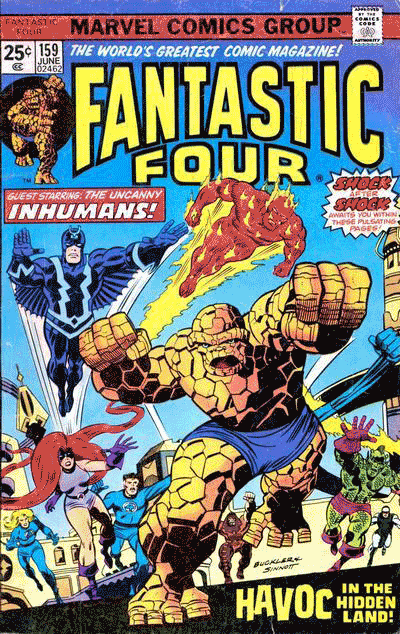
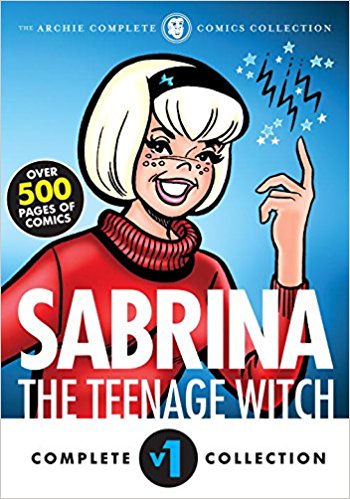
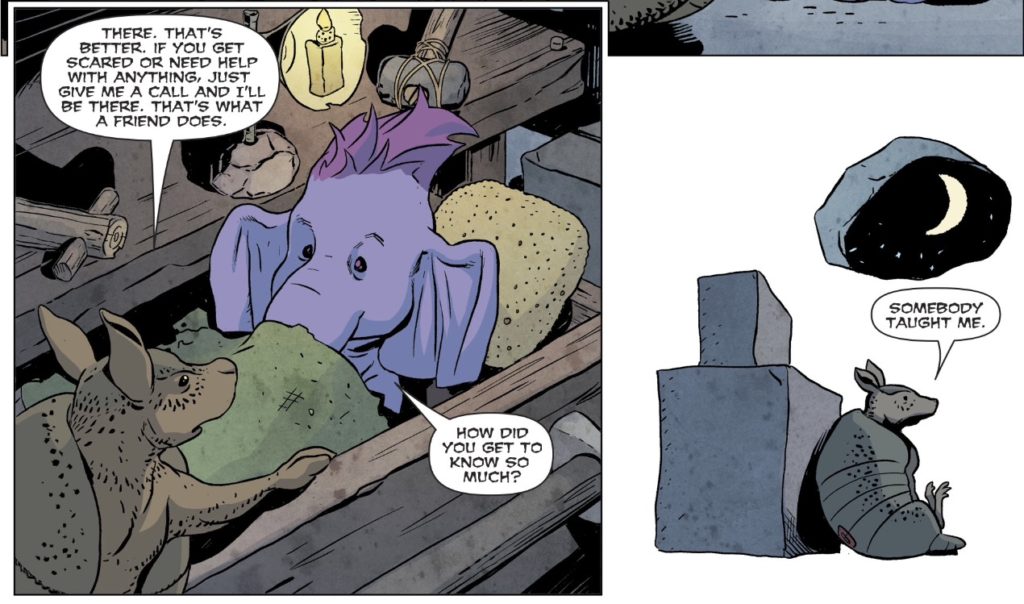
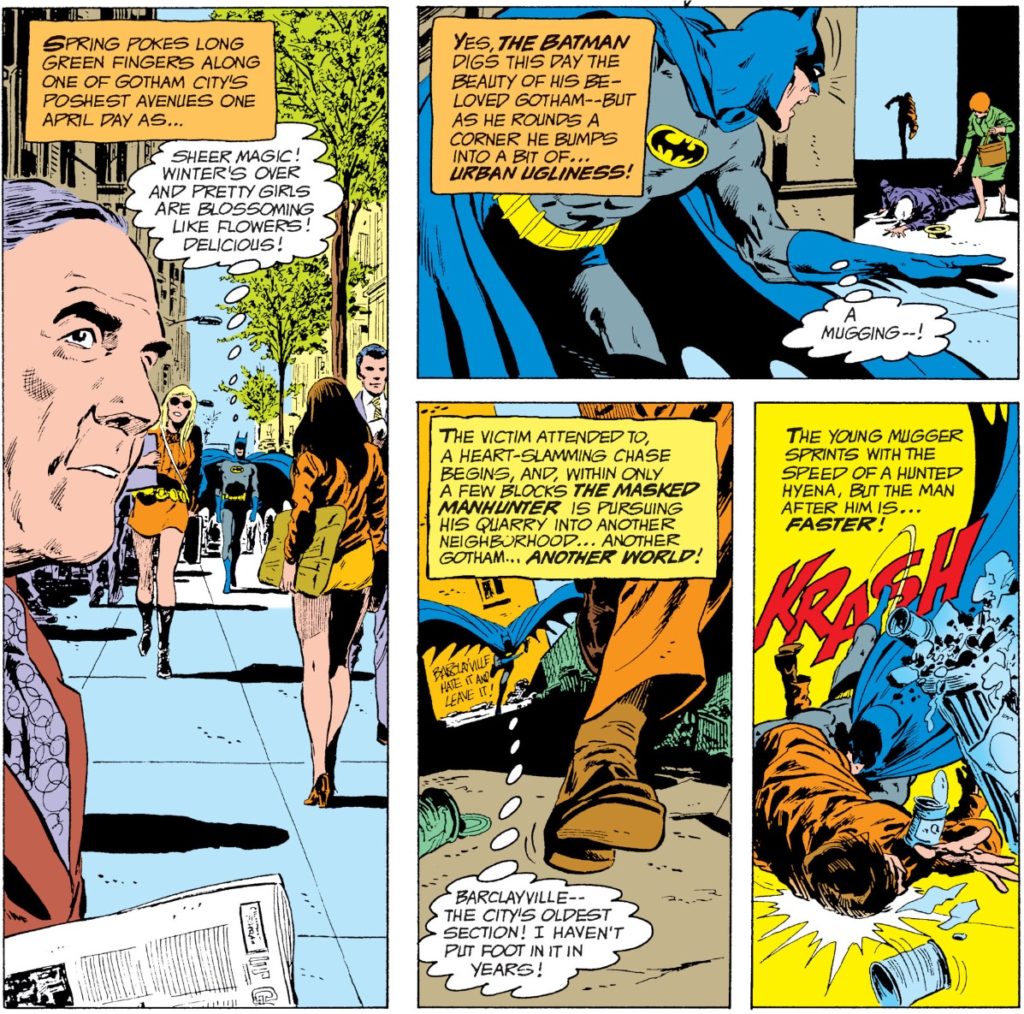
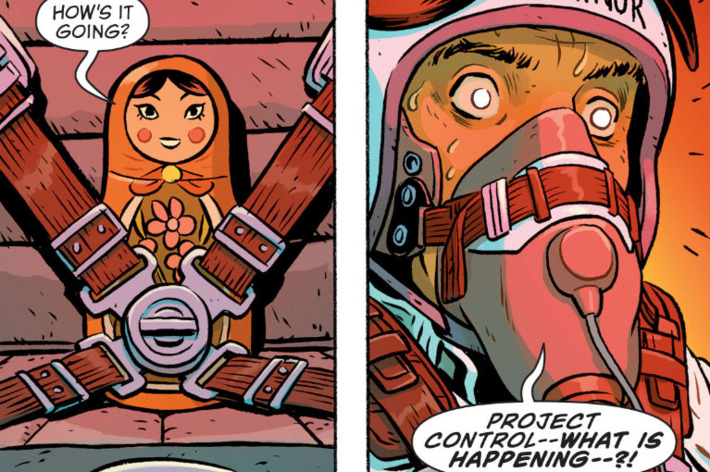
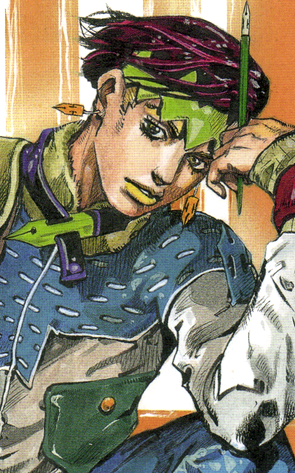



And for those in a cut & paste kind of mood:
http://theworkingdraft.com/media/podcasts2/WaitWhat227.mp3
Wow…Manga in Practice reads like the opposite of Will Eisner Graphic Storytelling and Sequential Art.
I must get it.
Anecdotally, I have not been buying any Marvel comics on the racks since joining Marvel Unlimited. But to be fair, I had only bought a couple of Marvel series on the racks in the previous few years (Immonen and Schiti’s Journey into Mystery, Superior Foes of Spiderman). Everything else I was buying digitally when it went on sale or bought in trade. And in that respect, my buying habits have definitely changed. I never purchase Marvel comics on Comixology (except the occasional Max title) because I can read them on MU. I didn’t even bother with the Kindle sale bc of MU (though I’ll probably regret that). And I rarely buy Marvel collections now to catch up, because I can do it for free on MU without them cluttering my house (old Doctor Strange, Skull the Slayer, etc.).
A lot of the new stuff I never would have paid for anyway. I’m reading the various Star Wars comics on MU, but aside from Gillen/Walker on Aphra, I wouldn’t pay more than 25 cents an issue to read those. Same goes for a lot of things like Ant-Man, Thor, Punisher, Captain America: Sam Wilson – I don’t think I’d even pay the 99 cent Comixology sale price for that stuff. But there are books I likely would have bought in trade for me or my daughter, like Squirrel Girl, Hellcat, Moon Girl, Ms. Marvel, and Weird World, that I’m just reading on MU instead.
Whereas with DC, I often drop money on 99 cent Comixology sales for things I definitely wouldn’t pay for if there was a DC equivalent to MU, like old issues of the Flash and Brave and the Bold, etc. I know I would drop a lot less on Comixology if there was a DC Unlimited, though it might all even out.
I used to be the classic trade-waiter. Marvel Unlimited has completely replaced that for Marvel comics. But I’m not sure that makes me personally a loss for Marvel, because I didn’t necessarily spend $60 a year on Marvel when I was buying trades. In part because Marvel wasn’t great about keeping their back catalogue in print. Most of what Marvel I did buy once upon a time was Essentials. In part because comics are too expensive for me to feel it’s worth it unless I know that I’m going to reread them – and an awful lot of comics are worth reading only once.
(It’s the back catalogue where MU really shines. Honestly, I wouldn’t pay this much just for digital access to current comics – I don’t like enough of them well enough for that. On Monday, what I’m most interested is the regular drop of older material.)
What I haven’t bought since signing up for MU is DC stuff. Every so often I leaf through a few trades in the store to see if there’s something that looks good enough to be worth buying. And there are certainly titles that are good – but nothing has yet crossed the threshold of being worth buying, when I know that I can read superhero comics that I’ve already paid for on MU.
Some of this is probably because I grew up on Marvel, admittedly, and my inner child doesn’t care as much about the DC characters. But I’d sign up for a DC Unlimited for the same price, or a little more – even if it was, say, comics that pre-New 52 only.
And, of course, the other thing is that I’m a predictable and reliable revenue stream for Marvel from now on.
Agreed re the MU back catalog. That’s why I joined MU, and still most of what I read. Lot of the new stuff I’m only reading cause it comes with the service anyway..
Dirty secret, on MU, the fact that I can often read a contemporary comic in under 5 minutes (like Cloonan and Dillon’s Punisher, All New Wolverine, or the Star Wars books) goes from a negative to a positive. If I paid $4 for a book and I can read it that fast, feels like a total waste, but on MU just means more time to read something else. Of course, it still has to justify those 5 minutes – most of the new stuff I’m not reading even for free.
I should say that a lot of the older stuff isn’t very good, either. But there’s so much of it, and a lot of it is of historical interest to me even if I don’t really care for it all that much. Or fills in that gap in the ’90s when I wasn’t reading superhero comics (and yes, a lot of that period isn’t very good). This makes finding the hidden gems a lot more tolerable.
Awwww. I suppose it probably isn’t very good–but a lot of the older stuff is not good in a way that’s very much my jam, while there’s also a lot of stuff I just…love for lack of a better term.
I suppose this isn’t scientifically accurate sample set at all, but I’m pretty gratified to see how many people have similar tastes to my own with Marvel Unlimited. I just think most people have gotten better at not buying Marvel as a result (whereas I wasn’t buying much of their stuff to begin with and have not begun buying an eensy bit more).
Hmm, another anecdote about the effect of Marvel Unlimited on a comic buying habit… I’ve had MU for about 2 years now. I still buy some Marvel comics regularly, Squirrel Girl, Ms Marvel, Moon Girl. I thought I’d do more of the six months later stuff, but I’ve probably read less than 50 recent Marvel comics on the service. I’ve used it more to read old stuff, most of which I’d owned at some time. I read lots of comics and recent Marvel comics have to fight for my reading time and without the feeling that I’ll miss them if I don’t buy them now, many series that look quite tempting (Aaron and Bachalo’s Dr Strange, Dauterman’s work on Thor) are waiting longer than I’d have expected. It’s like their availability has been a jumping off point, these comics aren’t serials in the way they were for most of my life.
Was there an implicit invitation to remark on the differences between you in this episode? No, no need to ask twice! I love the interplay between Graeme’s self certitude and Jeff’s self questioning. It produces some of the most comedic moments in the podcast. Having caught up on the podcast well after it began, I had the opportunity to hear how plausible and certain Graeme is in his predictions and yet in hindsight he can be so wrong. He would have absolutely convinced me on many occasions, if I didn’t have the luxury of knowing how things happened. Jeff predicts very few things, apart from falling short of his own ethical standards. And now I’m puzzled as these teasing remarks leave me feeling fond of you both. Am I that sort of person? Only pulling your hair because I like you?
Yes, David, you clearly are! :-)
As a Jojo fan I think I can provide Jeff with some helpful insights. Araki in his interviews is a very literal, straightforward person and as far as I can tell he isn’t purposefully invoking camp. His absurdist designs come from a very sincere belief in simple, straightforward ideas.
As an example, most any time a dog shows up in Jojo’s, a villian shows up to kill it. When asked if he hates dogs Araki said(paraphrased) “No, I love dogs, everyone does. If a character kills a dog the audience will know they are evil.”
Love Jojo. That’s a great quote.
Thanks, Skye!
My confusion isn’t so much about Araki–everything you describe backs up how I see him–as much as: I don’t know if I’m enjoying Araki the way he wants me to. That is, I adore JoJo’s Bizarre Adventure but some of the reasons I like it have to do with the unintentional campiness of it. It’s the absurd distance between the straightforward intention and the insane execution that gets me….and I don’t know if Araki would appreciate that distance being such a big part of my enjoyment. (It’s not the totality of my enjoyment–that guy knows how to build an action scene!)
So, unlike, say McCloud’s Understanding Comics where the text is easy to read at face value, I do wonder how many Americans are reading some of Araki’s in a way other than Araki intended–with a bit of snicker and a glean in their eye.
Oh, the camp is definitely a big part of what makes Jojo so great. I’ve been watching the recent anime series with my kids and they think it’s hilarious. But I got the sense some of the camp was intentional – I mean, the second series at a minimum is definitely trying to be funny.
Haven’t listened yet but I got excited when I saw the Complete Sabrina because it just came out and is already available on hoopla https://www.hoopladigital.com/title/11879397 (along with Young Animal’s Doom Patrol and pretty much all the Rebirth collections)
Ooooo, great tip! Hoopla is really turning out to be a helluva resource.
I also have some misgivings about Tom King’s Batman, and I’m not sure if they’re related to the ones that Jeff expressed or completely divergent. To me, King is leaning heavily into the “Bruce Wayne is a broken manchild who dresses up like a bat to fight crime because he was fundamentally broken by his parents murder and this is how he copes” trope. And the older I get the more I detest that trope. To me, it serves to make Batman unhealthy, reactionary and unheroic. It’s almost a villain trope rather than a heroic one – a character who is doing something for all of the wrong reasons. I’m kind of sick of stories that feature that particular take on Batman – in part because there are so many of them that it all feels very “been there/done that”. (I felt like this was foundational to the Nolan movies and is the take on Batman the Snyder uses in BvS as well. The Nolan movies were so well done – and done when I was less sick of the trope – that it didn’t bug me as much. But it really bugs me now.)
So I think it’s a testament to King’s writing ability that I can enjoy his run on Batman at all, given that bias that I have. And I am enjoying it, but every once in a while something snakes out that presents that unhealthy, unheroic, broken view of Batman that makes me roll my eyes and get a little bit irritated. And it was sounding to me like Jeff’s reaction was maybe somewhat similar to my own, though I very well could be wrong.
(My personal favorite take on Batman is that he does what he does because he wants to make sure no other child has to live through what he did. If he lived in the real world he’d set up multi-billion dollar foundations dedicated to helping crime victims and alleviating poverty. But he lives in the DCU, so he trained himself to be a super-ninja, spent a fortune on gadgets, puts on a costume every night and stops crime more directly. Because that’s how things roll in the DC Universe.)
Jeff’s response to Tom King’s Batman (and Cliff Steel’s) reminds me of some of the fan response to Si Spurrier’s X-Force run, which was basically telling the story of Cable’s and the rest of the team’s emotional breakdowns under the constant stresses created by their own ultra-violent endeavours. It was not a take that was particularly welcome, somewhat understandably, from those who were longtime Cable fans or fans of the Remender run.
There’s a way to do both approaches simultaneously–to revel in your form while critiquing it–but it’s a hard tone to hit just right.
On the Marvel Unlimited issue, I joined up after Marvel PQ offered a one month discount. It was rough weening myself off of weekly purchases, but once I fell behind to the point where MU had caught up to my reading, I couldn’t imagine going back. (Even with the frequent weird loading things on my ipad)
I’m a big fan of Tom King’s Vision and Omega Men but I blow hot and cold on his Batman. That amazing prison break issue apart, I’m really more into the non-adventure stuff, the scenes of characters just chatting… that diner vignette with the Robins, for instance – loved it. And the use of Punch & Jewelee, and Gotham Girl’s struggles. But the ‘revelation’ that young Bruce tried to commit suicide turned me off hugely. And that issue of Batman telling Bane he was going to break his back, like 400 times, was just a head scratcher. If this was a Grant Morrison book the repeated dialogue would’ve been a spell, or mnemonic device, to help our hero win, but what were we meant to get from this here? I already know Batman is single-minded.
I really want Graeme to tell us why Batman, in this case, didn’t seem like his mind had snapped; why is it about Jeff being too much of a Batman fan to appreciate the comic rather than Graeme being too little of a Batman fan to question what King is doing, having Batman repeat himself like a lunatic.
As for the Way/Derington Doom Patrol, I’m pretty much a Jeff here too – I appreciated it, but I didn’t love it; the fact that Casey just accepts every weird thing that happens make her a rubbish POV character, which seemed to be her initial role. Yes, it turns out she’s this way because she’s a comic book character created by a sentient street who was far more interesting when he didn’t jabber on constantly, but she’s not that compelling. The book feels too beholden to Pollack, who was apparently trying to out-weird Morrison. I’m already bored with the idea that soon everyone will be eating something that may be shit. I loved Giffen on Doom Patrol because he acknowledged what went before while having faith in his own brand of weird. Pretty art, though.
Martin Gray to the rescue! Thank you for your points and insights.
Jeff’s comments on Way’s Doom Patrol neatly summed up one of the things that’s bothered me about that book – Casey is a mystery, not a character, and when the mystery is revealed there’s nothing left to care about. Basically the comics equivalent of a modern Doctor Who companion.
Way also has a weird knack for focusing on the least interesting parts of his story (the endless backstory and exposition) while burying the most dramatic ones. (IIRC Flex dies off-panel!) In theory, subordinating the classic Doom Patrol characters – who are more fully fleshed out, if only by virtue of previous writers – to highlight the new cast could work, but only if that cast exists as a set of characters and not plot points and Mad Ideas (c and TM 1997 DC Comics).
I like your take, Cliff, thank you. And although it’s not what bothers me about King’s take–Martin and Jensen are much closer to the mark to me–I get your point.
In fact, everything you pointed out is exactly what ended up bugging me with Brubaker’s run, even though I love Brube’s work, I love Batman, and in theory his take should’ve lined up with what I like (moral ambiguity). But ultimately he took it too far for me to like it at all.
Handsome, intelligent billionaire with a social conscience? President Ellis was great, but President Wayne? Surely one of the great fictional US presidents.
Tom King’s Batman is flat and empty. I think you guys are being way too generous in projecting your own knowledge onto King’s work, because I don’t get the sense that King even knows about the Haney stuff well enough to play off of it in any way. I don’t get the sense that he has this intense anger toward Batman, but I don’t get the sense that he has any deep point to make about Batman either, positive or negative, damning or celebratory. There is no emotional core to any of the characters, nor much of a sense of motivation for any of them either. Why does Bane do what he does? The best answer we get is: Because he’s Bane. Why are Hugo Strange and Psycho Pirate wrapped up in all of this… stuff? Because that’s a neat combination of characters. Why does Bruce ask Selina to marry him now? Because that’s what King wants to have happen.
The breadcrumbs leading up to every emotional turn are sparse at best. Why does Swamp Thing’s final action in issue #23 contradict everything Swamp Thing had been saying all along for the whole issue? Who knows. It just happens, and I guess we’re just meant to project our own explanation of “Oh I guess people (and plants) are complicated” onto it. These aren’t really even stories, just pose pieces and half-thought-out sketches.
Bruce Wayne is questioning whether or not it was good to become Batman — whether it was a proper and healthy psychological response. Okay, it’s all well and good for Bruce to question himself sometimes, but the way King frames it is very tacky, very generic, very “popular psychology”, very elementary school “self-esteem conference”. Bruce Wayne has always had an intensely personal and private understanding of himself. He’s going to question whether or not he was “good enough”, whether or not he left people down, but he’s not going to question whether or not it was a “healthy emotional response to trauma” as far as average people are concerned. He’s not going to suddenly develop the peer-pressure concerns of a normal person or frame it that way — it feels very false. And all of this questioning is interspersed with Batman saving the city from the Monster Men and the assorted other villains — so really questioning whether or not he should have become Batman in the first place is a moot point proven wrong several times over in King’s own run, because Batman’s been saving so many people’s lives. The questioning is only happening because it’s something King wants to write about. He’s not led up to it in any believable way.
Aso: “Selina, I’m proposing to you because my father from another reality told me maybe I should have a normal life instead of becoming Batman. Oh yeah, this alt-reality Thomas Wayne actually became Batman in his reality and we saved multiple realities and timelines together, Batman and Batman side by side. But I’m going to now question having become Batman, and ask you to marry me. Oh but first I need to explain to you what I did several years ago when the Joker and Riddler warred against each other, because even though that was apparently a big deal with all the villains choosing sides, yet you never heard about it and it’s super important and could have bearing on whether or not you want to marry me, even though I might not want to be Batman anymore.”
It’s all tacky, contrived, emotionally hollow and overblown. King’s formal tricks and surface-level references to past history can only take him so far. Is it neat that Bruce remembers the Golden Age meeting with Selina, while Selina remembers the Modern Age version? Yeah it’s neat, but readers can’t really relate to it in terms of “Why would Bruce want to marry Selina now? What is their relationship actually based on?” It feels cheap and gimmicky — as does the rationale of every other motivation in the run. The meeting between the Riddler and Joker — why they would want to team up but then fight each other — makes no sense, on either of their parts.
I’m not an OCD Bat-fan who needs every little thing to make sense all the time. I’m not the kind of reader who thinks there’s only ONE way to do Batman right. Clearly there’s a large spectrum. The problem is that Tom King doesn’t seem capable of building stories or character studies with any sort of cohesiveness. His comics read like a series of formal tricks: “In this issue we’re doing nine-panel grids to reference Watchmen. In that issue we referenced The Killing Joke (for no reason). In that issue we referenced All Star Superman (for no reason). In this issue I’m just going to have Batman repeat the same phrase twenty-eight times. Etc.” Stop being so impressed by “FORMER CIA SUPER-AGENT TOM KING!” and read these issues like they were written by Tony Daniel or David Finch. They’re cringe-worthy non-stories whose writer is way out of his depth.
I was particularly dissatisfied with the conclusion of the “I am Bane” storyline. It didn’t make any sense to me. I wondered why, with all the tools and tricks and armored bat suits and his brilliant tactical mind, would Batman engage in simple hand to hand combat with a roided out monster who had an overwhelming artificial advantage? A fight that Batman should theoretically lose. Batman’s supposed to be smarter than that. That’s what makes him Batman. Then I realized, that maybe the point was that he wanted the abuse and was prepared to die to finally join his parents in death. I suppose this ties into the “I am Suicide” arc. It’s not clear, but it’s implied that he’s tired of being Batman and prepared to die a “good death,” which he discusses with his mother in a state of delirium. He then has an epiphany that he’s not willing to die for victory in his war on crime, but because Gotham Girl needed help, so he helped her. I might be misreading this because it makes very little sense to me. For me, this is a perfect example of King’s contempt not only for Batman as a character, but for us, his audience, as well.
It’ obvious that King’s Batman is conflicted and having a crisis of faith in his mission. This is not the version of Batman I want to read about.
Nicely scalding summation, Jensen! This is a bit more condemnatory than where I went, obviously, but a lot of it strikes chords with me. I definitely found myself wondering once or twice if King was in way over his head on this assignment.